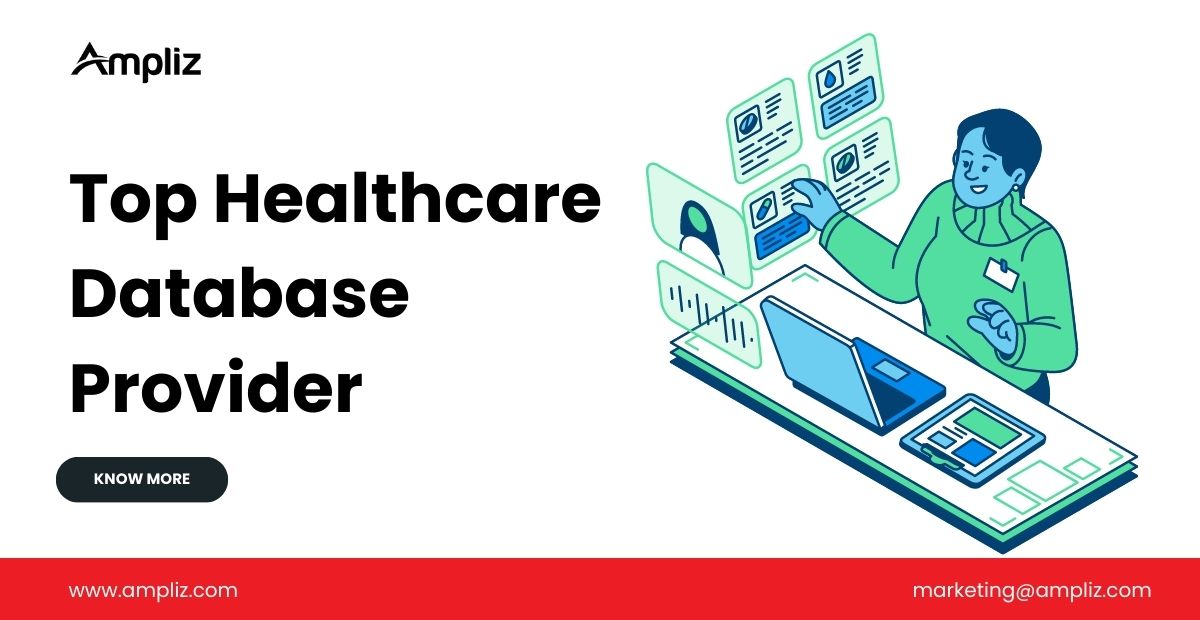Trick Attributes to Seek When Selecting a Data Source Service Provider
Picking a database carrier is a critical decision that can dramatically affect your organization's information and procedures monitoring approach. Among the vital functions to consider are scalability alternatives, which make sure that your system can adjust to expanding demands. Safety and security measures, efficiency metrics, and consumer support likewise play critical functions in this examination procedure. As you weigh these elements, it comes to be obvious that the choice is not merely about functionality yet also regarding straightening with your long-term vision. What other factors to consider might influence this essential choice?
Scalability Options
When choosing a database company, understanding scalability alternatives is important to ensuring that the picked solution can fit future development. Scalability refers to the capacity of a database system to broaden its ability and efficiency in reaction to raised demand. There are two main kinds of scalability: vertical and horizontal.
Upright scalability, or "scaling up," entails improving a solitary server's sources, such as CPU, RAM, or storage space. This method can be affordable and straightforward for smaller applications but may get to a restriction where additionally upgrades are too pricey or impractical.
Straight scalability, or "scaling out," entails including more servers to disperse the load. This technique permits greater flexibility and can suit significant boosts in information volume and user website traffic (database provider). It is particularly helpful for cloud-based data source solutions that can dynamically assign sources based on need

Safety Measures

When reviewing safety actions, take into consideration the application of file encryption methods (database provider). Data-at-rest and data-in-transit security are important to guarantee that sensitive information continues to be secured, even in case of a security breach. Additionally, seek service providers that supply strong authentication mechanisms, such as multi-factor verification (MFA), to even more enhance accessibility control
Routine security audits and conformity with sector criteria, such as GDPR or HIPAA, are a sign of a provider's dedication to information defense. Additionally, ask about their occurrence feedback strategy; a durable plan can minimize the impact of any kind of possible safety incident.
Performance Metrics
Reviewing performance metrics is necessary for companies to make sure that their selected data source carrier satisfies operational needs. Trick performance metrics consist of response scalability, time, and throughput, which jointly identify the performance of data source procedures under differing loads.
Action time is crucial, as it reflects just how quickly the database can process questions and return results. Organizations use this link ought to try to find metrics that show average response times throughout optimal and off-peak hours. Throughput, typically gauged in transactions per second (TPS), gives insight right into the database's capacity to handle high quantities of requests without performance destruction.
Scalability evaluates the database's ability to expand with the company's requirements. A durable database supplier should demonstrate straight and vertical scaling capabilities, allowing for smooth adjustments as demands fluctuate. Additionally, comprehending latency, especially in distributed systems, can aid organizations assess the responsiveness of the database across different geographical places.
Customer Support
Reputable client assistance is a cornerstone of reliable data source management, providing companies with the aid required to maximize and settle concerns performance. When choosing a database service provider, evaluating the degree of customer assistance they provide is essential. A robust support group must consist of numerous networks of interaction, such as phone, email, and live chat, making certain that customers can access assistance whenever they need it.
Furthermore, receptive assistance groups that are offered 24/7 substantially enhance the integrity of the database service. Prompt reaction times and effective resolution of issues can significantly lower downtime and increase overall performance. It is likewise helpful to consider the availability of committed support employees, who can supply customized aid based upon an organization's certain requirements.

Pricing Structure
When thinking about a data source service provider, the pricing framework is a crucial element that can dramatically impact a company's budget plan and total approach. A versatile and clear pricing version is essential for straightening the database costs with service demands - database provider. Organizations should review whether the pricing is based on intake, per user, or a flat price, as each version can generate different monetary effects gradually
It is necessary to assess any kind of extra costs linked with the provider's services, such as data storage charges, transaction prices, and support fees. Some suppliers may use tiered pricing, permitting scalability as the organization grows, while others might enforce stringent limits that might become expensive as information demands boost.
Additionally, organizations need to consider the long-lasting worth of the database option. While lower first rates can be appealing, they may not represent future upgrades, upkeep charges, additional resources or assimilation prices. Performing an extensive cost-benefit evaluation will help recognize the most appropriate pricing structure that balances scalability, efficiency, and assistance, ultimately making sure that the picked data source service provider lines up with the company's operational and financial purposes.
Final Thought
In final thought, selecting a database provider requires cautious consideration of numerous essential attributes. Scalability alternatives make sure versatility to future development, while durable security steps secure delicate details. see this website Examining efficiency metrics enables the identification of reliable data sources, and accessible client assistance enhances the overall user experience. A transparent pricing framework additionally contributes to notified decision-making. By extensively evaluating these variables, companies can make critical selections that line up with their functional requirements and long-lasting objectives.
Selecting a data source supplier is an important decision that can substantially influence your organization's data and procedures administration technique.When picking a data source company, comprehending scalability alternatives is crucial to guaranteeing that the chosen option can suit future development. When picking a data source service provider, assessing the degree of client support they use is necessary.When considering a database service provider, the pricing structure is a crucial factor that can substantially affect a company's budget and general method. Conducting a detailed cost-benefit evaluation will help recognize the most appropriate rates framework that balances performance, scalability, and assistance, ultimately ensuring that the selected database supplier straightens with the company's operational and economic goals.
Comments on “Choosing the Right Database Provider for Your Organization Requirements”